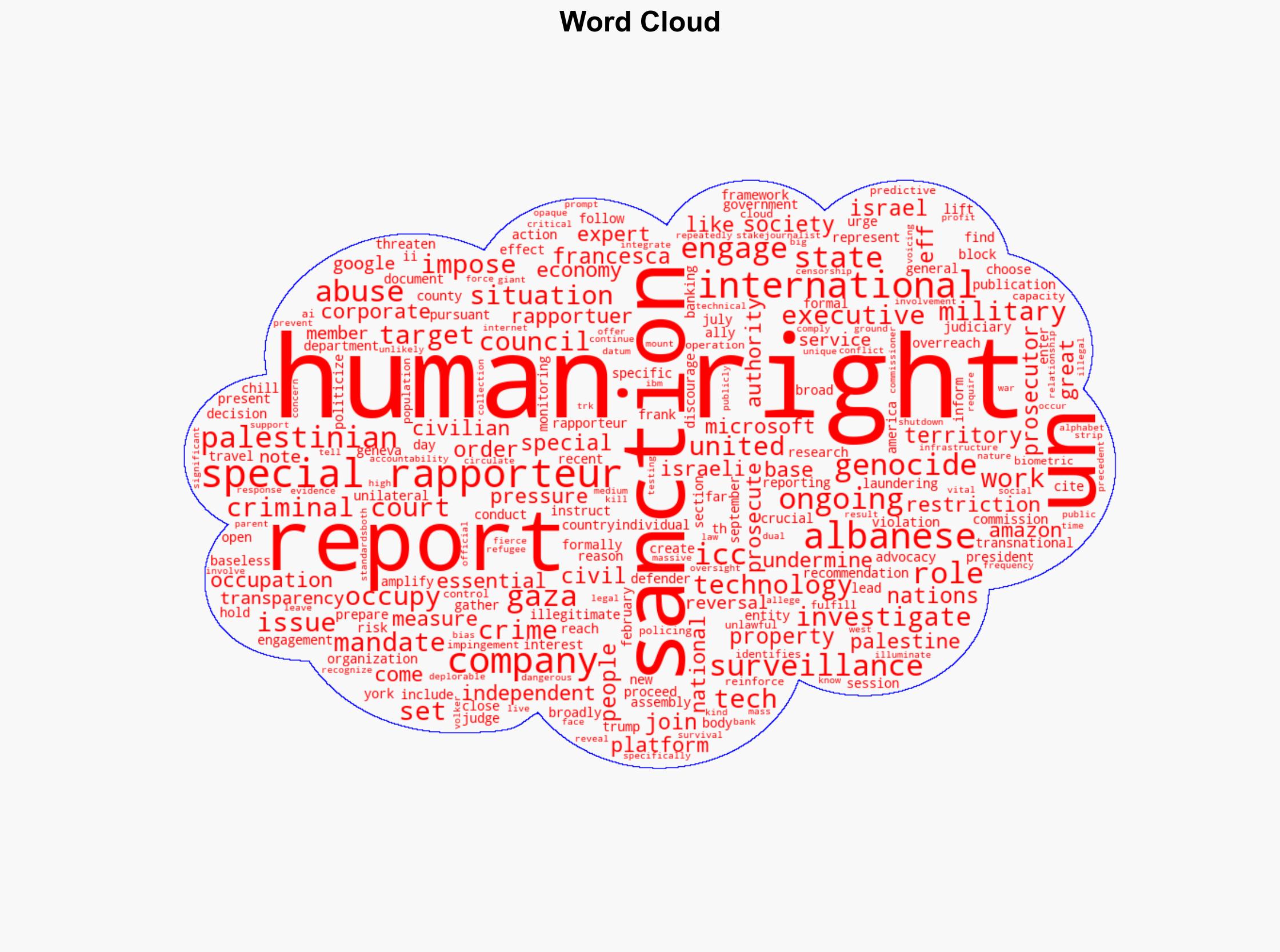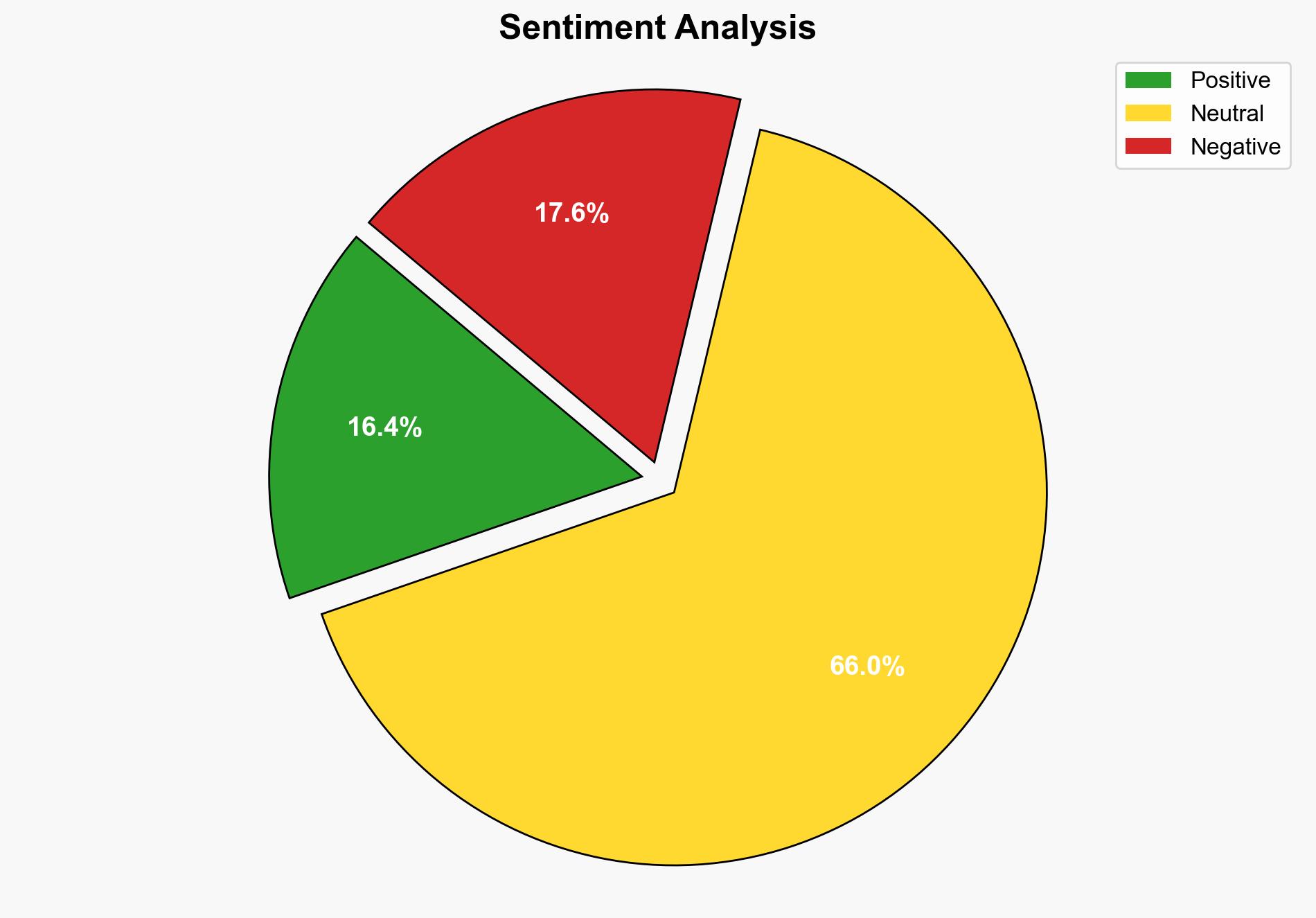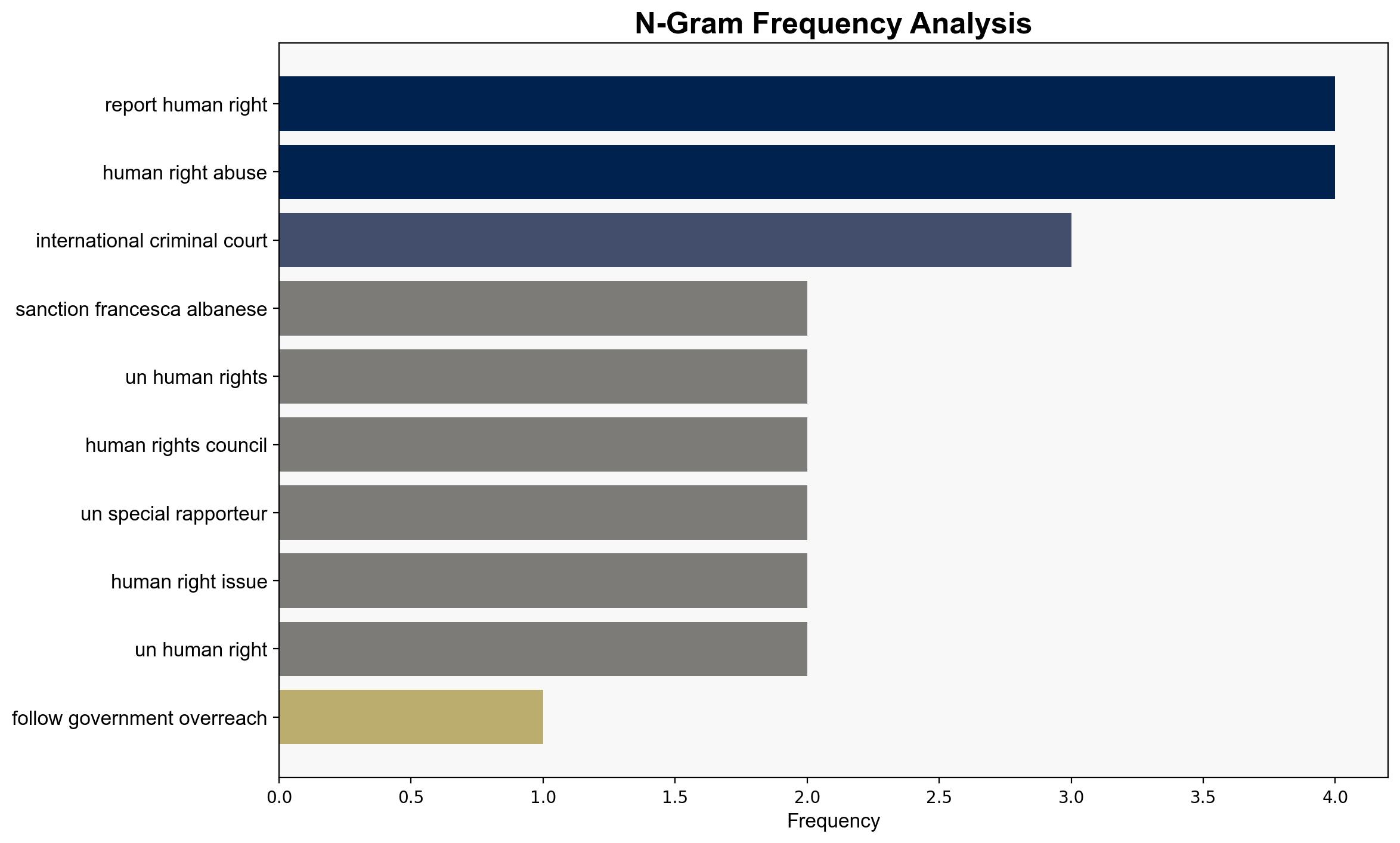EFF Joins 55 Civil Society Organizations Urging the End of Sanctions on UN Special Rapporteur Francesca Albanese – EFF
Published on: 2025-09-05
Intelligence Report: EFF Joins 55 Civil Society Organizations Urging the End of Sanctions on UN Special Rapporteur Francesca Albanese – EFF
1. BLUF (Bottom Line Up Front)
The most supported hypothesis is that the sanctions on Francesca Albanese are primarily politically motivated to deter scrutiny of Israel’s actions in Palestinian territories. Confidence in this assessment is moderate due to the complexity and sensitivity of international relations involved. Recommended action is to advocate for diplomatic engagement to address concerns while ensuring the independence of UN investigations.
2. Competing Hypotheses
1. **Political Motivation Hypothesis**: The sanctions are a strategic move to shield Israel from international scrutiny by undermining the UN Special Rapporteur’s capacity to report on human rights violations in Palestinian territories.
2. **Security and Legal Compliance Hypothesis**: The sanctions are imposed to ensure compliance with U.S. legal frameworks and national security interests, particularly concerning the International Criminal Court’s actions perceived as hostile to U.S. and allied interests.
3. Key Assumptions and Red Flags
– **Assumptions**: The Political Motivation Hypothesis assumes that the U.S. prioritizes shielding allies over international human rights norms. The Security and Legal Compliance Hypothesis assumes that the sanctions are strictly in line with legal and security protocols.
– **Red Flags**: The timing of the sanctions following the publication of Albanese’s report suggests potential retaliatory motives. Lack of transparency in the decision-making process raises questions about the true intent behind the sanctions.
4. Implications and Strategic Risks
The sanctions could undermine the credibility of international human rights mechanisms and set a precedent for politicizing UN mandates. This may lead to increased tensions between the U.S. and international bodies, potentially escalating into broader geopolitical conflicts. The situation could also exacerbate regional instability in the Middle East.
5. Recommendations and Outlook
- Engage in diplomatic dialogue with the U.S. to clarify the rationale behind the sanctions and explore avenues for lifting them without compromising legal standards.
- Encourage transparency in the UN’s reporting processes to build trust and mitigate accusations of bias.
- Scenario-based projections:
- **Best Case**: Sanctions are lifted following diplomatic negotiations, restoring the UN’s capacity to monitor human rights effectively.
- **Worst Case**: Continued sanctions lead to a breakdown in international cooperation, increasing regional tensions.
- **Most Likely**: Partial lifting of sanctions with conditions, maintaining some level of international scrutiny.
6. Key Individuals and Entities
– Francesca Albanese
– UN Human Rights Council
– U.S. State Department
– International Criminal Court
– Tech companies: Microsoft, Alphabet, Amazon, IBM
7. Thematic Tags
national security threats, cybersecurity, counter-terrorism, regional focus





